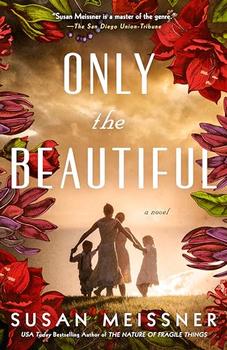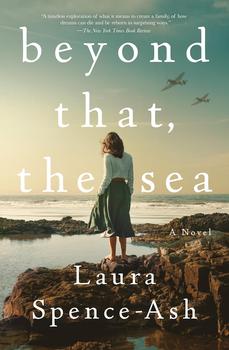Summary | Excerpt | Reading Guide | Discuss | Reviews | Beyond the book | Read-Alikes | Genres & Themes | Author Bio

A heartrending story about a young mother's fight to keep her daughter, and the winds of fortune that tear them apart by the USA Today bestselling author of The Nature of Fragile Things and The Last Year of the War.
California, 1938—When she loses her parents in an accident, sixteen-year-old Rosanne is taken in by the owners of the vineyard where she has lived her whole life as the vinedresser's daughter. She moves into Celine and Truman Calvert's spacious house with a secret, however—Rosie sees colors when she hears sound. She promised her mother she'd never reveal her little-understood ability to anyone, but the weight of her isolation and grief prove too much for her. Driven by her loneliness she not only breaks the vow to her mother, but in a desperate moment lets down her guard and ends up pregnant. Banished by the Calverts, Rosanne believes she is bound for a home for unwed mothers. But she soon finds out she is not going to a home of any kind, but to a place that seeks to forcibly take her baby – and the chance for any future babies – from her.
Austria, 1947—After witnessing firsthand Adolf Hitler's brutal pursuit of hereditary purity—especially with regard to "different children"—Helen Calvert, Truman's sister, is ready to return to America for good. But when she arrives at her brother's peaceful vineyard after decades working abroad, she is shocked to learn what really happened nine years earlier to the vinedresser's daughter, a girl whom Helen had long ago befriended. In her determination to find Rosanne, Helen discovers a shocking American eugenics program—and learns that that while the war had been won in Europe, there are still terrifying battles to be fought at home.
Meissner's extensive research into this time period and movement is clear in her detailed descriptions of mental institutions and the resistance Helen meets as she advocates for the differently abled. Brutal and heartbreaking, yet ultimately joyful, Only the Beautiful not only shines a light on a dark period in American history but shows the importance of speaking out for what's right...continued
Full Review
(692 words)
This review is available to non-members for a limited time. For full access,
become a member today.
(Reviewed by Jordan Lynch).
In Only the Beautiful, the historical novel by Susan Meissner, readers are introduced to Rosanne "Rosie" Maras, a teenage girl who has lost her family and is placed under the care of her parents' former employers. To most, Rosie seems like a normal girl, but she's hiding a secret: when she hears sounds, she sees colors. When her secret is revealed—amidst other shocking discoveries—Rosie is sent to a state home where doctors try to "cure" her of what they deem a disability.
Today, Rosie's ability is known as synesthesia, defined as "a neurological condition in which stimulation of one sensory or cognitive pathway…leads to automatic, involuntary experiences in a second sensory or cognitive pathway." In other words, when...
This "beyond the book" feature is available to non-members for a limited time. Join today for full access.

If you liked Only the Beautiful, try these:

by Elana K. Arnold
Published 2024
From Michael L. Printz honoree & National Book Award finalist Elana K. Arnold comes the harrowing story of a young girl's struggle to survive the Holocaust in Romania.

by Laura Spence-Ash
Published 2024
A sweeping, tenderhearted love story, Beyond That, the Sea by Laura Spence-Ash tells the story of two families living through World War II on opposite sides of the Atlantic Ocean, and the shy, irresistible young woman who will call them both her own.
Our wisdom comes from our experience, and our experience comes from our foolishness
Click Here to find out who said this, as well as discovering other famous literary quotes!